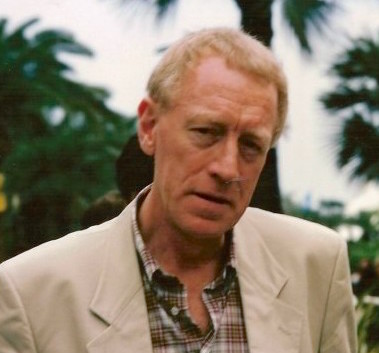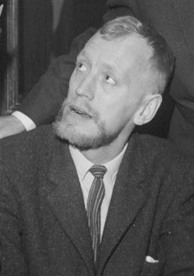Max von Sydow
Max von Sydow

Max von Sydow, born Carl Adolf von Sydow on April 10, 1929, was a Swedish-French actor with a remarkable 70-year career in European and American cinema, television, and theatre. Throughout his career, he appeared in over 150 films and several television series, showcasing his versatility in roles ranging from stolid, contemplative protagonists to sardonic artists and menacing villains. Von Sydow received numerous accolades for his performances, including honors from prestigious film festivals such as Cannes and Venice. He earned two Academy Award nominations, one for Best Actor for his role in "Pelle the Conqueror" (1987) and another for Best Supporting Actor for "Extremely Loud and Incredibly Close" (2011).
Max von Sydow gained international recognition for his portrayal of the 14th-century knight Antonius Block in Ingmar Bergman's "The Seventh Seal" (1957), a film renowned for its iconic scenes of the character challenging Death to a game of chess. Von Sydow collaborated with Bergman on eleven films, including "Wild Strawberries" (1957), "The Virgin Spring" (1960), "Through a Glass Darkly" (1961), "Winter Light" (1963), "Shame" (1968), and "The Touch" (1971).
His American film debut came with the role of Jesus Christ in the Biblical epic "The Greatest Story Ever Told" (1965), followed by appearances in "Hawaii" (1966), "The Exorcist" (1973), "Three Days of the Condor" (1975), "Flash Gordon" (1980), "Conan the Barbarian" (1982), and "Never Say Never Again" (1983). Additionally, he had supporting roles in "Dune" (1984), "Hannah and Her Sisters" (1986), "Awakenings" (1990), "Minority Report" (2002), "The Diving Bell and the Butterfly" (2007), "Shutter Island" (2010), "Robin Hood" (2010), and "Star Wars: The Force Awakens" (2015). In 2016, he portrayed the Three-eyed Raven in the HBO series "Game of Thrones," earning a Primetime Emmy Award nomination for Outstanding Guest Actor in a Drama Series.
Throughout his career, von Sydow received numerous awards and honors, including the Royal Foundation of Sweden's Cultural Award in 1954, the Commandeur des Arts et des Lettres in 2005, and the Chevalier de la Légion d'honneur in 2012.
Carl Adolf von Sydow was born on April 10, 1929, in Lund, Sweden. His father, Carl Wilhelm von Sydow, was an ethnologist and professor of folkloristics at Lund University, while his mother, Baroness Maria Margareta Rappe, worked as a schoolteacher. Von Sydow's ancestry included part-German heritage, with a paternal ancestor named David Sydow who immigrated from Pomerania to the Kalmar region in 1724. His mother also had part-Pomeranian descent.
Raised as a Lutheran, von Sydow later became agnostic in the 1970s. He attended Lund Cathedral School, where he began learning English at an early age. Initially expected to pursue a career in law, his interest in acting was sparked after watching a production of A Midsummer Night's Dream during a class trip to Malmö. This led him to establish an amateur theatrical group with his friends at school.
After serving for two years in the Swedish Army with the Army Quartermaster Corps, von Sydow adopted the name "Max" from the star performer of a flea circus he witnessed. He then studied at the Royal Dramatic Theatre in Stockholm from 1948 to 1951. During his time there, he helped establish a theater group, alongside actress Ingrid Thulin. Von Sydow made his stage debut in a small role in the Goethe play "Egmont," which, despite his initial concerns, earned him positive reviews for his performance.
While studying at the Royal Dramatic Theatre, Max von Sydow made his screen debuts in films directed by Alf Sjöberg, including "Only a Mother" (Bara en mor, 1949) and "Miss Julie" (Fröken Julie, 1951). Following this, in 1951, von Sydow joined the Norrköping-Linköping Municipal Theatre, where he appeared in nine plays, including "Peer Gynt."
In 1953, he moved to the City Theatre in Hälsingborg, where he played eleven different roles over the course of two years. These roles included Prospero in "The Tempest" and the title role in the Pirandello play "Henry IV." Von Sydow's performances garnered critical acclaim, and in 1954, he was awarded the Royal Foundation of Sweden's Cultural Award, recognizing his talent and potential as a young actor.
In 1955, Max von Sydow moved to Malmö and joined the Malmö City Theatre, where Ingmar Bergman served as the chief director. Despite a previous attempt to secure a role in Bergman's film "Prison" (Fängelse, 1949), von Sydow was initially rejected. However, their collaboration began with "The Seventh Seal" (Det sjunde inseglet, 1957), where von Sydow portrayed the disillusioned 14th-century knight Antonius Block, returning from the Crusades to a plague-stricken Sweden. The iconic scene of his character playing a game of chess with Death has become a hallmark moment in cinema. This marked the beginning of von Sydow's appearances in a total of 11 Bergman films.
In "The Magician" (Ansiktet, 1958), von Sydow starred as Vogler, a traveling illusionist in 19th-century Sweden who remains silent for much of the film. In "The Virgin Spring" (Jungfrukällan, 1960), he portrayed a medieval landowner seeking vengeance for the rape and murder of his daughter. In "Through a Glass Darkly" (Såsom i en spegel, 1961), he depicted the husband of a schizophrenic woman, played by Harriet Andersson. During this period, von Sydow also appeared in other Bergman films such as "Wild Strawberries" (Smultronstället, 1957), "Brink of Life" (Nära livet, 1958), and "Winter Light" (Nattvardsgästerna, 1963).
Films featuring von Sydow were submitted by Sweden for the Academy Award for Best Foreign Language Film in five out of six years between 1957 and 1962. Under Bergman's direction, von Sydow also continued his stage career, portraying characters like Brick in "Cat on a Hot Tin Roof," Peer in "Peer Gynt," Alceste in "The Misanthrope," and Faust in "Urfaust." He worked alongside frequent Bergman collaborators such as Gunnar Björnstrand, Ingrid Thulin, Bibi Andersson, and Gunnel Lindblom.
References
- "NLS: Say How". loc.gov. Retrieved 2 January 2017.
- a b c d e f g h i j k l m Saad, Nardine (9 March 2020). "Max von Sydow, Swedish star of Bergman films, 'The Exorcist,' dies at 90". Los Angeles Times. Retrieved 9 March 2020.
- a b c d Rafferty, Terrence (December 2015). "The Greatest Actor Alive". The Atlantic. Retrieved 10 March 2020.
- ^ Hynes, Eric (28 November 2012). "Staring Down Death: The Singular Career of Max von Sydow". The Village Voice. Retrieved 10 March 2020.
- ^ "Max von Sydow". Emmys.com. Retrieved 22 February 2021.
- ^ TT Spektra (24 January 2011). "Max von Sydow dubbad till riddare" [Max von Sydow knighted]. Dagens Nyheter (in Swedish). Retrieved 19 October 2016.
- Berkvist, Robert (9 March 2020). "Max von Sydow, Star of 'Seventh Seal' and 'Exorcist', Dies at 90". The New York Times. Retrieved 9 March 2020.
















































